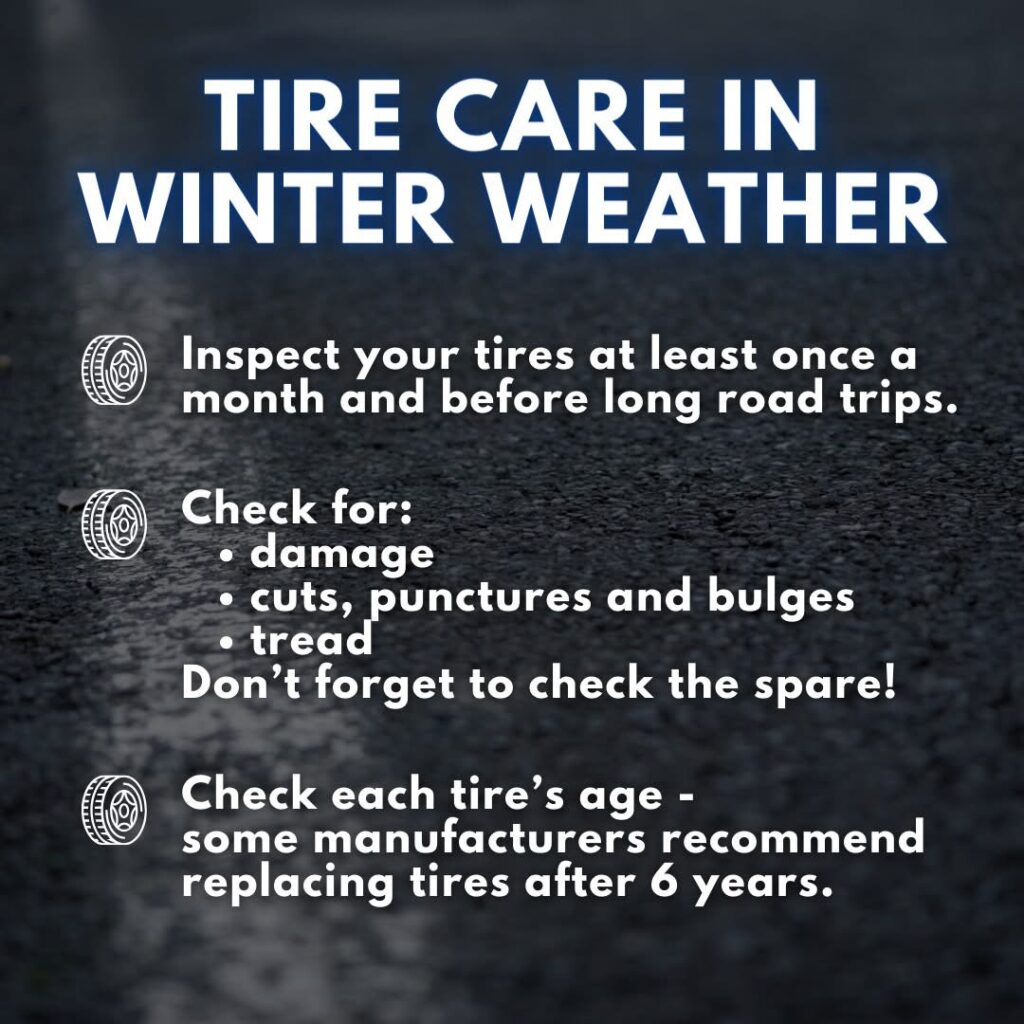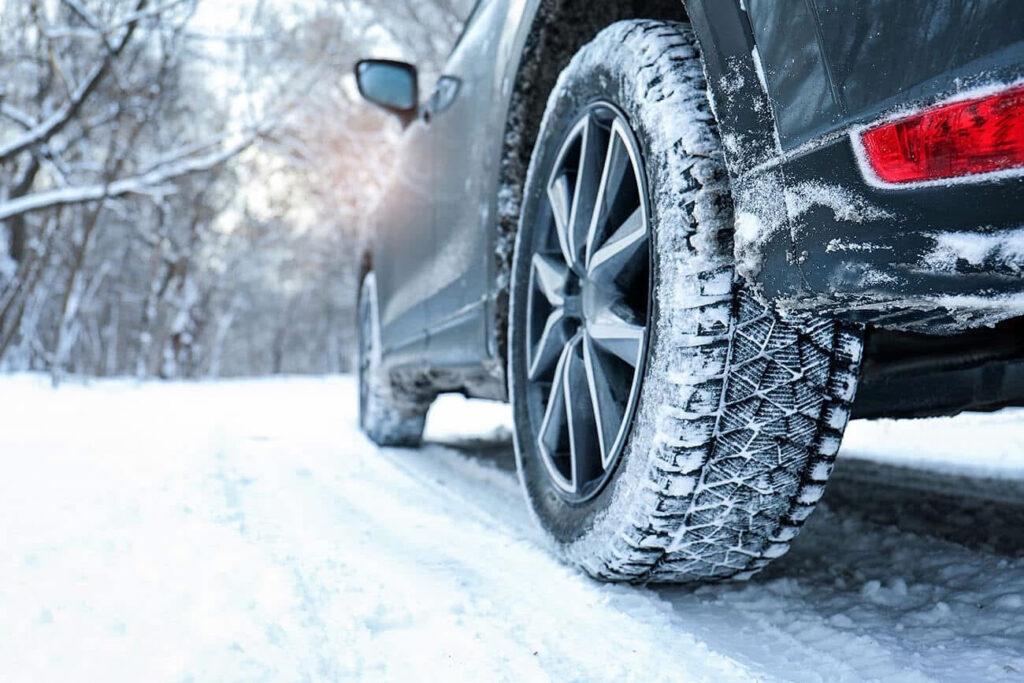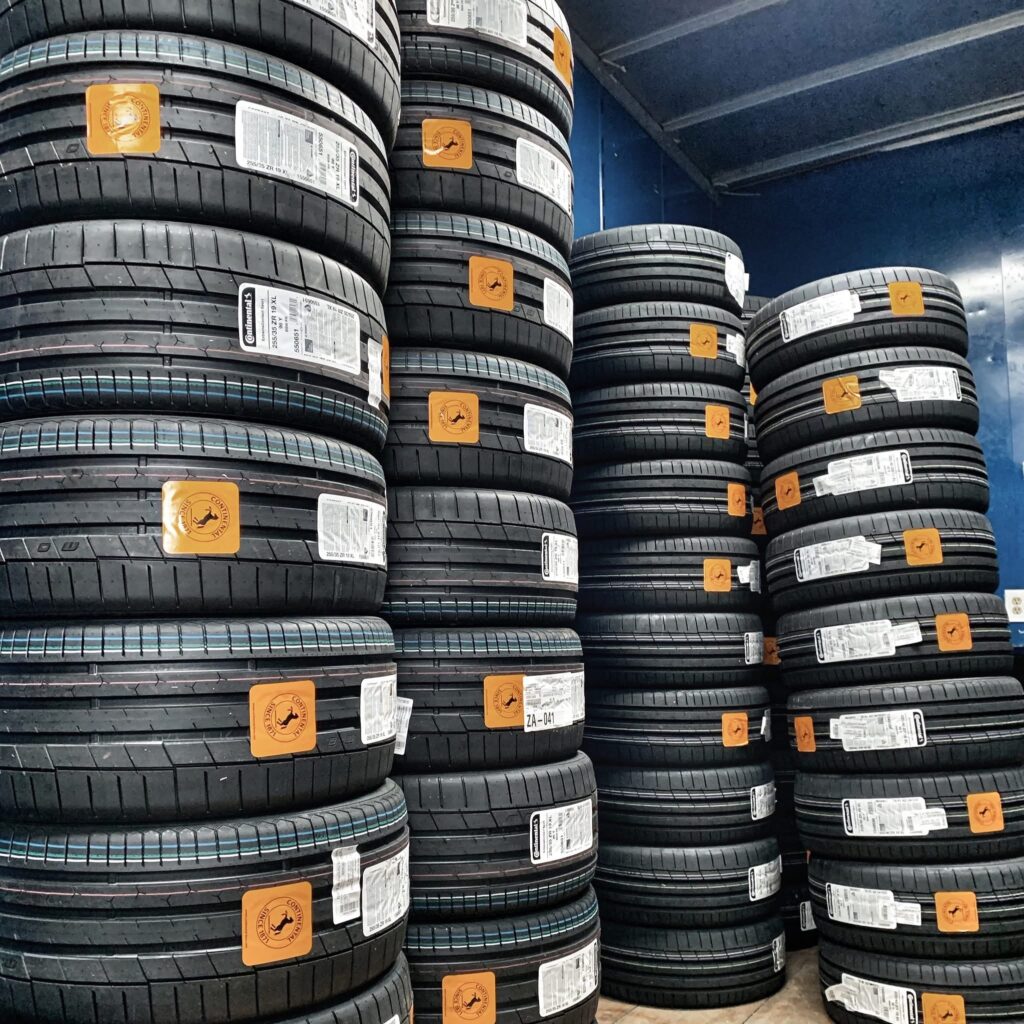
Proper tire care during winter is essential for maintaining safety and performance on icy, snowy, or cold roads. Here are key tips to ensure your tires perform optimally during winter weather:
- Use Winter Tires: Winter tires are specifically designed to perform better in cold temperatures, snow, and ice. Their tread patterns are deeper and more aggressive, which provides better traction. If you live in an area with harsh winters, investing in winter tires is crucial.
- Check Tire Pressure Regularly: Cold temperatures can cause tire pressure to drop. Low tire pressure can lead to poor handling, decreased fuel efficiency, and increased tire wear. Check tire pressure at least once a month, and adjust it according to the manufacturer’s recommendation, which is usually listed on a label inside the driver’s door.
- Inspect Tire Tread: The tread on your tires should be deep enough to effectively channel water, slush, and snow away from the tire. You can use the “penny test” to check the tread depth. If the tread is worn down to 2/32 of an inch or less, it’s time to replace the tires.
- Avoid Sudden Acceleration and Hard Braking: Winter driving conditions require smooth, gradual movements. Sudden acceleration or hard braking can lead to loss of traction, especially on icy or snow-covered roads.
- Rotate Tires Regularly: Regular tire rotation ensures even wear across all tires. This can help prevent problems such as one tire becoming too bald or damaged more quickly than the others, which is especially important when you’re using winter tires.
- Balance and Align Tires: Misaligned or unbalanced tires can wear unevenly and negatively affect handling. Having your tires balanced and aligned before winter ensures they perform optimally during winter conditions.
- Store Summer Tires Properly: If you’re switching to winter tires, store your summer or all-season tires in a cool, dry place. Avoid stacking them directly on top of each other or leaving them exposed to extreme temperatures, as this can damage the rubber.
- Drive at Appropriate Speeds: Winter conditions often require slower speeds to maintain control. Make sure to adjust your driving speed according to road conditions, even if you have the best tires for winter.

By following these tips, you’ll help extend the life of your tires and improve safety during the colder months.

Contact Doylestown Auto Repair at 267-279-9477 or visit our website at www.doylestownautoshop.com to schedule an appointment to have your car serviced.
